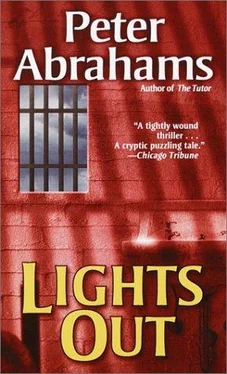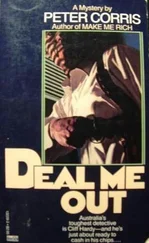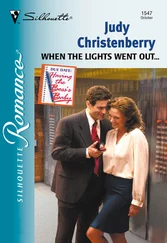Peter Abrahams - Lights Out
Здесь есть возможность читать онлайн «Peter Abrahams - Lights Out» весь текст электронной книги совершенно бесплатно (целиком полную версию без сокращений). В некоторых случаях можно слушать аудио, скачать через торрент в формате fb2 и присутствует краткое содержание. Год выпуска: 2002, ISBN: 2002, Издательство: Fawcett Books, Жанр: Триллер, на английском языке. Описание произведения, (предисловие) а так же отзывы посетителей доступны на портале библиотеки ЛибКат.
- Название:Lights Out
- Автор:
- Издательство:Fawcett Books
- Жанр:
- Год:2002
- ISBN:978-0345445780
- Рейтинг книги:4 / 5. Голосов: 1
-
Избранное:Добавить в избранное
- Отзывы:
-
Ваша оценка:
- 80
- 1
- 2
- 3
- 4
- 5
Lights Out: краткое содержание, описание и аннотация
Предлагаем к чтению аннотацию, описание, краткое содержание или предисловие (зависит от того, что написал сам автор книги «Lights Out»). Если вы не нашли необходимую информацию о книге — напишите в комментариях, мы постараемся отыскать её.
Lights Out — читать онлайн бесплатно полную книгу (весь текст) целиком
Ниже представлен текст книги, разбитый по страницам. Система сохранения места последней прочитанной страницы, позволяет с удобством читать онлайн бесплатно книгу «Lights Out», без необходимости каждый раз заново искать на чём Вы остановились. Поставьте закладку, и сможете в любой момент перейти на страницу, на которой закончили чтение.
Интервал:
Закладка:
“Jack?” It was Karen on the speaker phone. “I can hardly hear you.”
“I can’t talk right now,” Jack said. “I’ll call you tomorrow.”
“That’s not good enough. I’m concerned about my account. Extremely. I spoke to my lawyer about it this afternoon. She’s extremely concerned too. I don’t want this to get messy, Jack, but I’m afraid-”
Jack’s voice rose. “Tomorrow. You’ll have it tomorrow.”
There was a pause. Then Karen said, “Where are you?”
“I’ll call you by noon,” Jack said, and clicked off.
He turned to Eddie. “And don’t you patronize me,” he said. Again Eddie was conscious of the shifting balance between them. “I may not have your experience in these matters, but I’m used to managing risk.” He drove on; in the glow of the instrument panel Eddie could see his hands tightening around the steering wheel.
“Then take the next right,” he said.
Jack turned onto the dirt road. “Besides,” he said. “What choice have I got?”
“Cut the lights.”
Jack slowed down, switched them off. A half moon hung just above the trees, lighting their way. Big clouds drifted across the sky like continents. “My night vision has gone to shit,” Jack said.
“We’re not in a hurry.”
Eddie checked the odometer. The road ran straight through the woods. The moonlight glistened on the wet branches, on a pond in the distance, on the eyes of a small animal that ran across the road. Good things happened under the light of the moon, at least in “The Mariner.”
The moving moon went up the sky,
And nowhere did abide;
Softly she was going up,
And a star or two beside.
Eddie looked up through the windshield for a star or two, saw none.
Three miles passed, three and a half, four. Eddie wanted to make their exit as fast as possible, but he didn’t want to take the chance of being heard from the gate.
“Stop the car,” he said.
Jack stopped the car.
“Turn it off.”
Jack switched off the engine. Eddie got out, listened. He heard nothing but the wind rising in the trees. A cold wind: he looked up at the sky and saw that more cloud continents had appeared. Those near the moon had white trim, like beaches. Eddie got back in the car.
“Next place you can pull off to the side, do it.”
Jack drove on. There was a small clearing a few hundred feet ahead, an opening in the shadows.
“Back in,” Eddie said.
Jack backed in, parked behind a screen of trees. Eddie walked into the road. A ray of moonlight caught the antenna; otherwise the car was invisible. Good enough. Eddie glanced up at the gathering clouds: there wasn’t going to be moonlight much longer.
They took the bikes off the rack, the ax from the trunk. Eddie put it in one of the backpacks and strapped it on. Jack strapped on the other, locked the car, pocketed the keys.
“Is there another set?”
“Why would we need another set?”
Eddie didn’t want to let his imagination go on that one. “Someone I knew did six years because his keys fell through a grate at the worst possible moment.”
Jack smiled; that old smile, flashing in the moonlight. “There’s another set under the floor mat in back.”
Eddie smiled too.
They got on the bikes.
“I feel kind of silly,” Jack said.
But bikes were perfect for what Eddie had in mind, faster than a man could run, and silent. They pedaled off on the dirt road, side by side.
The wind whistled in Eddie’s ears, cold, exhilarating. Wind, like the moon, was a good omen. Eddie felt excitement rising inside him and stilled it. Omens, exhilaration, excitement: these were the stuff of ballads, and of robberies gone wrong.
“I haven’t been on a bike since we were kids,” Jack said.
“Sh.”
Ahead, Eddie saw a metallic gleam. He braked, at the same time reaching across the space between them and touching Jack’s arm.
“What?” said Jack.
“Sh.”
Jack halted a few yards ahead, came back, walking his bike. “What is it?” he said in a low voice.
Eddie pointed. In the distance he could see moonlight on a steel gate, and beyond it a shadow that might have been a man.
“I don’t see anything,” Jack said.
Eddie didn’t explain. He turned and started walking his bike the way they had come. Jack followed. After a few hundred yards, Eddie cut into the woods at a right angle.
The treetops filtered out the moonlight. Eddie couldn’t see the branches that reached out to snag the backpack, or the rocks the tires bumped against. He bumped against a few things himself. The ax in his backpack shifted into an uncomfortable position. Behind him, he heard a soft crash.
“Shit,” Jack said.
“Quiet.”
Eddie listened, heard only the wind.
They went on for a while, made another right-angle turn. Five or ten minutes later, Eddie caught another gleam through the trees. A few more steps and they were at the fence: four horizontal strands of barbed wire extending into darkness in both directions. A rural fence, meant for marking boundaries and containing livestock, not for keeping out determined people or attracting the curiosity of law-abiding neighbors. Eddie raised the lowest strand. Jack crawled through, dragging his bike behind. Then he held the wire up for Eddie.
“It’s like that old punch line,” Jack said. “So far so good.”
Eddie didn’t know the joke that went with it.
They moved into the woods on the far side of the fence, turned right, and came to the dirt road sooner than Eddie had expected. They must have gone through the fence much closer to the gate than he’d intended. He’d have to remember that on the way back.
They remounted their bikes, rode on, over the rise and past the turning to the farm. The wind blew harder now, and colder. Above, the clouds thickened, crowding the half moon on all sides. Eddie pedaled faster; without moonlight there might be trouble spotting the track that led to the airstrip. Jack was quiet except for his breathing, which grew heavier. He began to fall behind.
Eddie was almost past the track before he saw it: a narrow opening in the darkness. He halted, waited for Jack. He heard the crunching of a fat tire on pebbled earth, Jack’s breathing, and then Jack was beside him.
“How much farther?” he asked.
“Not far,” Eddie replied. “And keep your voice down.”
“When this is over, I’m going to get in shape,” Jack said, more quietly. “Maybe you and me’ll do some swimming.”
“At Galleon Beach,” Eddie said.
Pause. “Why there?”
“It’s a nice place.”
“There’s lots of nice places.”
They rode up the track. Eddie wasn’t sure of the distance. It seemed like a long time before he heard water gurgling, came to the wooden bridge.
“Here?” Jack said.
Eddie nodded. He examined the bridge. It was about two car lengths long, surfaced with worn planks that weren’t laid flush to each other. The downstream side sagged slightly. Not a sturdy structure: that was good.
Eddie walked his bike down the bank of the stream, laid it on the dry earth under the bridge supports. There were four of them, two on each side of the stream, wooden posts almost twice the diameter of telephone poles. He took off his backpack, removed the ax, unclipped the leather blade-cover.
Jack, laying his bike beside Eddie’s, said, “What about the noise?”
“That’s why I didn’t bring a chain saw,” Eddie said, and swung at the downstream support. High to low on the first cut; the blade sank into the wood with a thunk that didn’t sound especially loud to Eddie but made Jack suck in his breath. Low to high on the second cut. Again the blade bit deep; the wood was half rotten. This time Jack made no sound.
Читать дальшеИнтервал:
Закладка:
Похожие книги на «Lights Out»
Представляем Вашему вниманию похожие книги на «Lights Out» списком для выбора. Мы отобрали схожую по названию и смыслу литературу в надежде предоставить читателям больше вариантов отыскать новые, интересные, ещё непрочитанные произведения.
Обсуждение, отзывы о книге «Lights Out» и просто собственные мнения читателей. Оставьте ваши комментарии, напишите, что Вы думаете о произведении, его смысле или главных героях. Укажите что конкретно понравилось, а что нет, и почему Вы так считаете.












